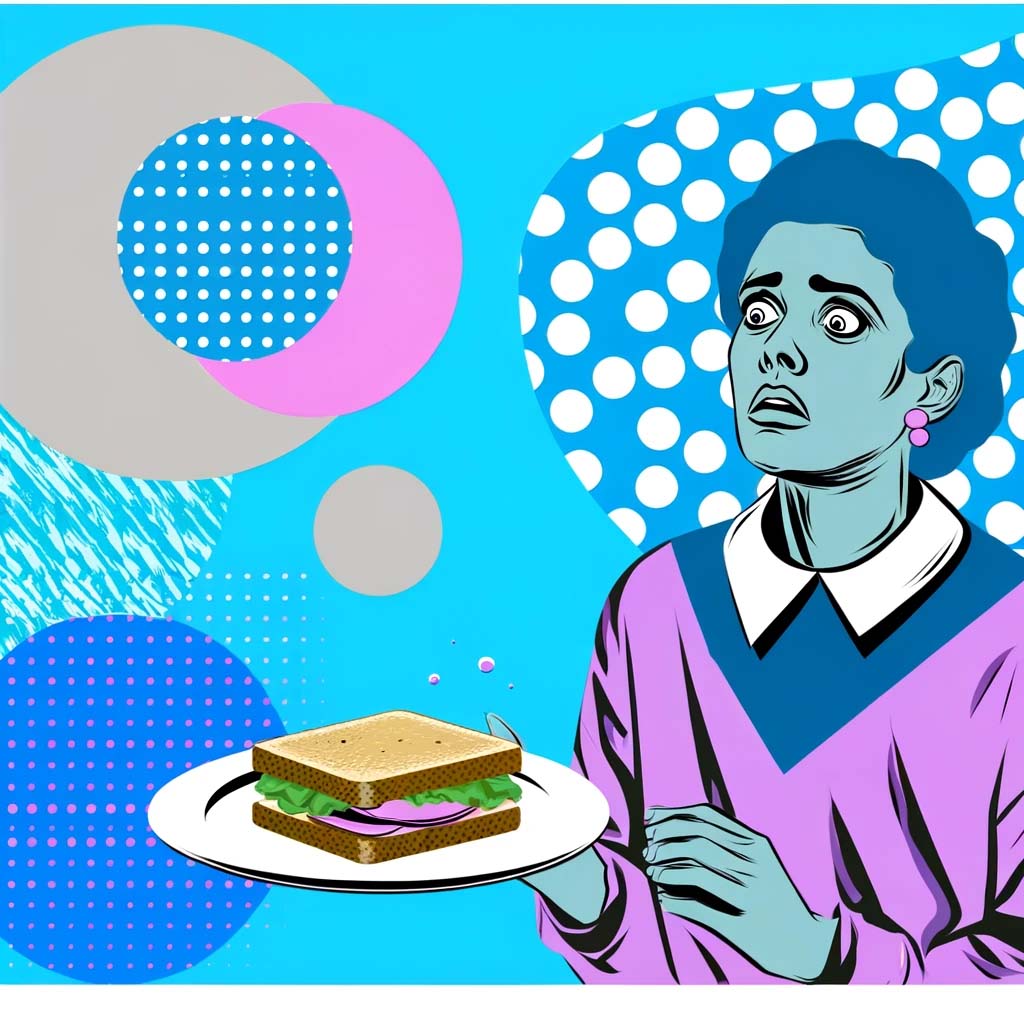Emetophobia, the intense fear of vomiting, isn’t just a dislike; it’s a pervasive anxiety disorder that can cast a long shadow over various aspects of life. While the outward manifestations might differ from person to person, the impact on daily routines, relationships, and overall well-being can be profound. Let’s delve into the intricate ways of how emetophobia impacts everyday life?
Food and Eating:
Imagine struggling to enjoy meals with loved ones or friends, constantly worried about potential triggers or the possibility of getting sick. Emetophobia can severely restrict food choices, turning mealtimes into a source of stress and anxiety.
- Restricted diets: The fear of ingesting something that might cause illness can lead to restrictive eating patterns. Individuals with emetophobia might avoid certain foods, entire food groups, or new foods altogether. This can lead to nutritional deficiencies and an unhealthy relationship with food.
- Mealtime anxiety: The process of eating itself can become stressful, with constant worries about food safety, preparation, and potential negative reactions. This can take the joy out of eating and make social gatherings involving food challenging and can lead to food eating disorder such as anorexia.
Travel and Daily Routines:
The fear of getting sick while traveling, especially in unfamiliar environments, can severely restrict travel plans. Individuals with emetophobia often spend significant time researching and planning their daily routine or travel plan to ensure they can avoid potential triggers, such as certain restaurants or crowded transportation options.
- Limited travel opportunities: Public transportation or even crowded streets can become potential minefields for someone with emetophobia. This can limit exploration, prevent cultural experiences, and alter the ability to create lasting memories. This can take the spontaneity and joy out of travel experiences.
- Constant vigilance and planning: Daily errands like grocery shopping or attending routine appointments can be fraught with anxiety, prompting the need for excessive planning and avoidance behaviors. The constant “what if” scenario can significantly disrupt the flow of everyday life.
Mental and Emotional Wellbeing:
Emetophobia isn’t just a physical fear; it takes a toll on one’s mental and emotional well-being.
- Anxiety and stress: The constant fear of vomiting and its potential consequences can lead to chronic anxiety, fatigue, difficulty concentrating and stress, impacting overall mental well-being. Intrusive thoughts can dominate daily life, impacting sleep quality make daily activities feel overwhelming.
- Low self-esteem and shame: Repeated limitations due to emetophobia can contribute to feelings of low self-esteem and shame. Individuals might feel judged, misunderstood, or even embarrassed by their fear, further impacting their social interactions and overall well-being.
Social Interaction and Relationship:
- Isolation and loneliness: Avoiding situations that might trigger emetophobia such as restaurants, parties, or travel, can lead to social isolation and missed opportunities to connect with friends and family. This can strain relationships and contribute to feelings of loneliness and depression.
- FOMO (Fear of missing out): Witnessing others enjoy activities like eating at new restaurants or traveling can trigger feelings of FOMO and exacerbate feelings of isolation and exclusion.
Education and Work:
- School absences and missed opportunities: The fear of vomiting in schools, especially during group activities or meals, can lead to frequent absences and missed academic opportunities. Similarly, emetophobia can impact work performance by causing anxiety around work meals, social events, or travel requirements.
- Career limitations: In some cases, emetophobia might limit career options, particularly those in industries that involve travel, public interaction, or working with children who might be sick. The fear of public vomiting or being judged can also hinder career progression and limit participation in professional opportunities.
Physical Health:
- Excessive handwashing and hygiene practices: To avoid germs and potential contamination, individuals with emetophobia might engage in excessive handwashing and hygiene practices, which can irritate the skin and even weaken the immune system.
- Avoidance of medical care: The fear of encountering sick people or triggering emetophobia symptoms might lead to delaying or avoiding necessary medical care, potentially delaying diagnoses, and treatment for unrelated health concerns.
The Domino Effect:
The impact of emetophobia is often multifaceted and interconnected. The fear itself can lead to other mental illnesses, depression, obsessive compulsive disorders (OCD), avoidance behaviors, which in turn, reinforce the fear cycle. This can lead to a decrease in quality of life, missed opportunities, and social isolation. It’s important to understand that emetophobia doesn’t just impact one aspect of life; it has the potential to touch every facet, creating a web of challenges that can be overwhelming.
Breaking Free from the Web:
Despite the significant impact it can have, it’s crucial to remember that emetophobia is treatable. With the right support, therapy, and self-management strategies, individuals can learn to manage their anxiety and reclaim control over their lives.
Disclaimer: This article is for informational purposes and should not replace professional guidance.





0 Comments